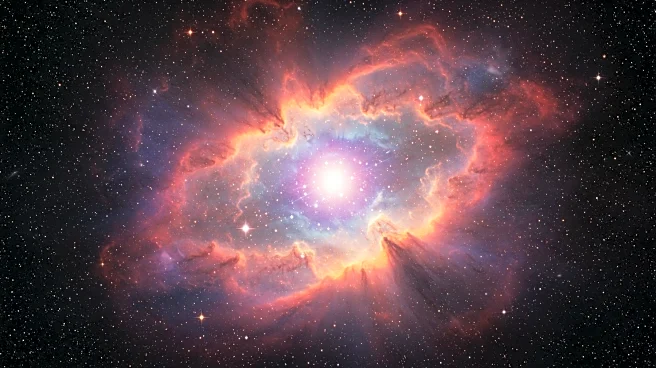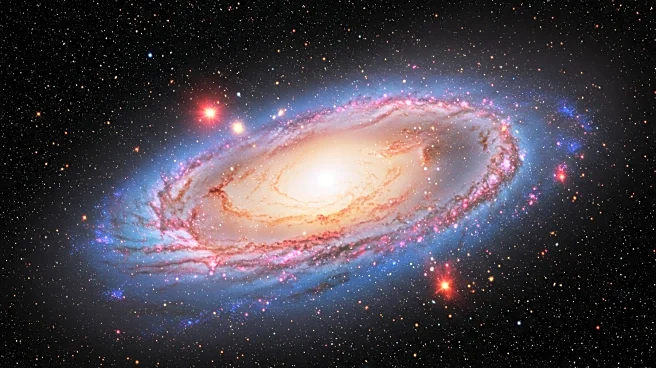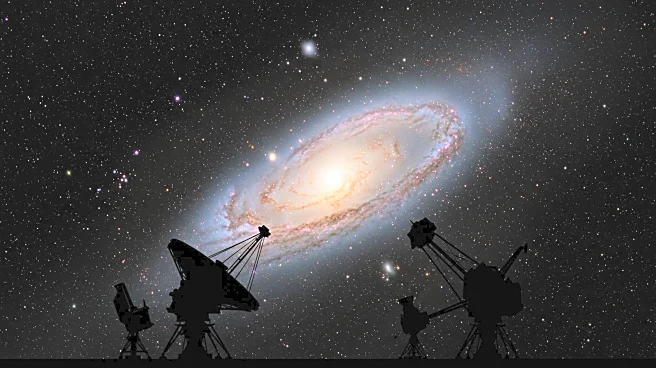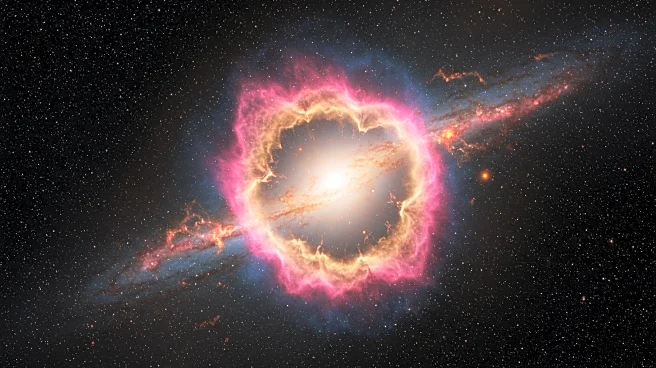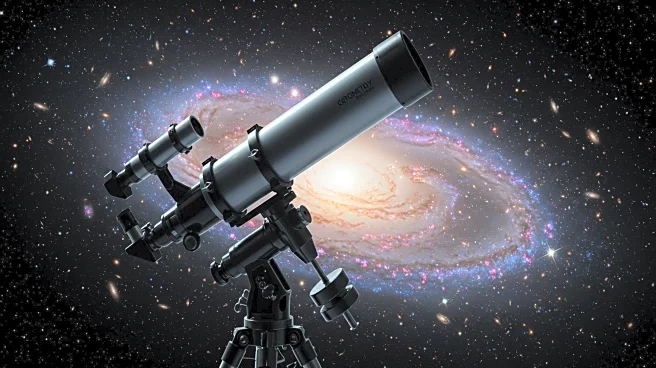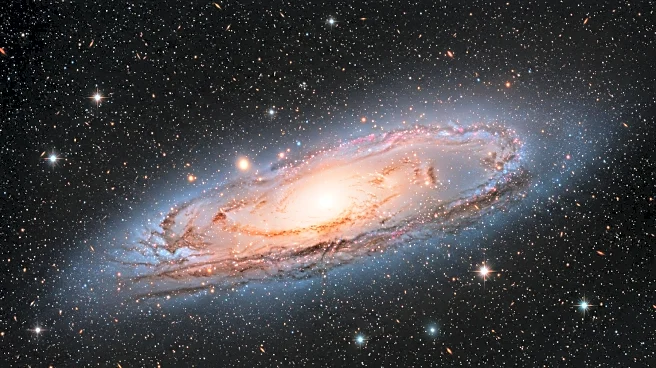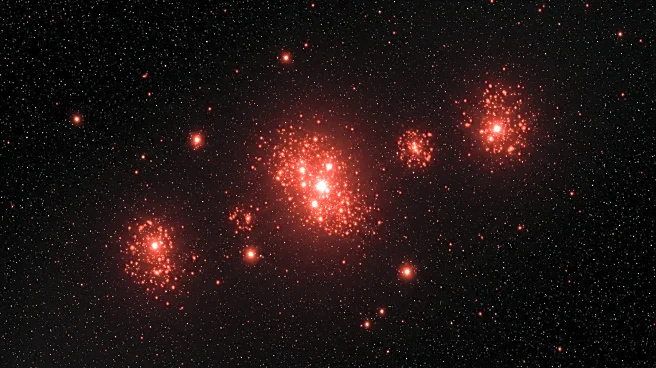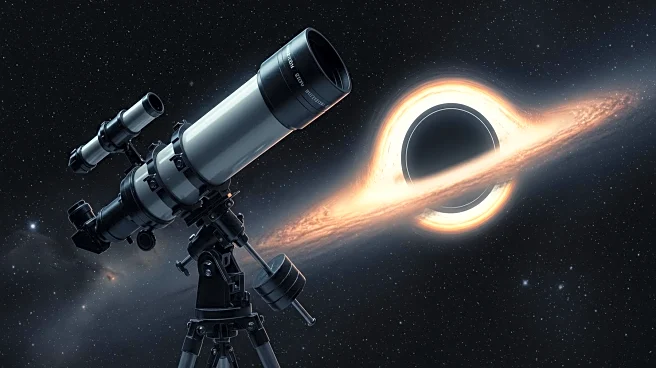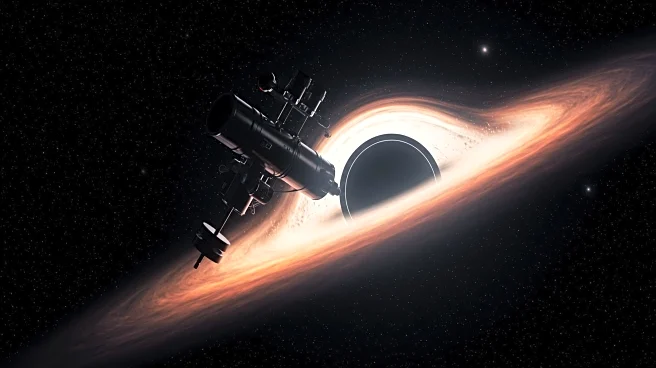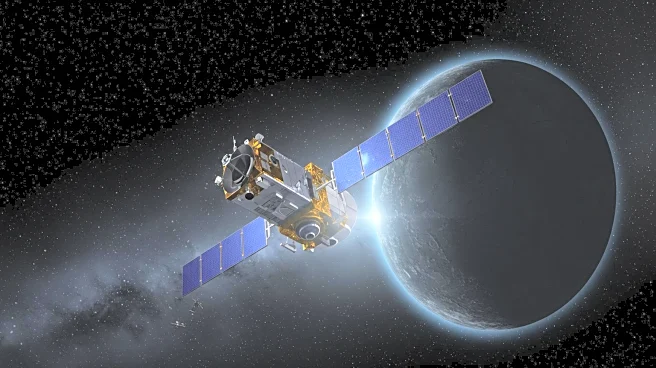Rapid Read • 6 min read
Scientists have potentially solved one of the universe's oldest mysteries by recreating the first molecules formed after the Big Bang. The research suggests that the rate of molecular reactions did not slow as the universe cooled, contrary to previous theories. This finding could alter our understanding of star and planet formation and the universe's expansion. The study involved recreating helium hydride ions and molecular hydrogen, believed to be crucial in early star formation, and testing their reactions under controlled conditions.
AD
This breakthrough challenges existing theories about the early universe's molecular formation, which are fundamental to our understanding of cosmic evolution. If the findings are confirmed, they could reshape scientific perspectives on how stars and planets formed and how the universe expanded. The research highlights the importance of molecular interactions in cosmic development and could lead to new insights into the universe's future expansion and star formation processes.
Further research and peer review are necessary to validate these findings. If confirmed, the study could lead to a reevaluation of current models of the universe's early development. Scientists may continue to explore the implications of these molecular interactions, potentially unlocking new data about the universe's expansion and the formation of celestial bodies.
AD
More Stories You Might Enjoy
